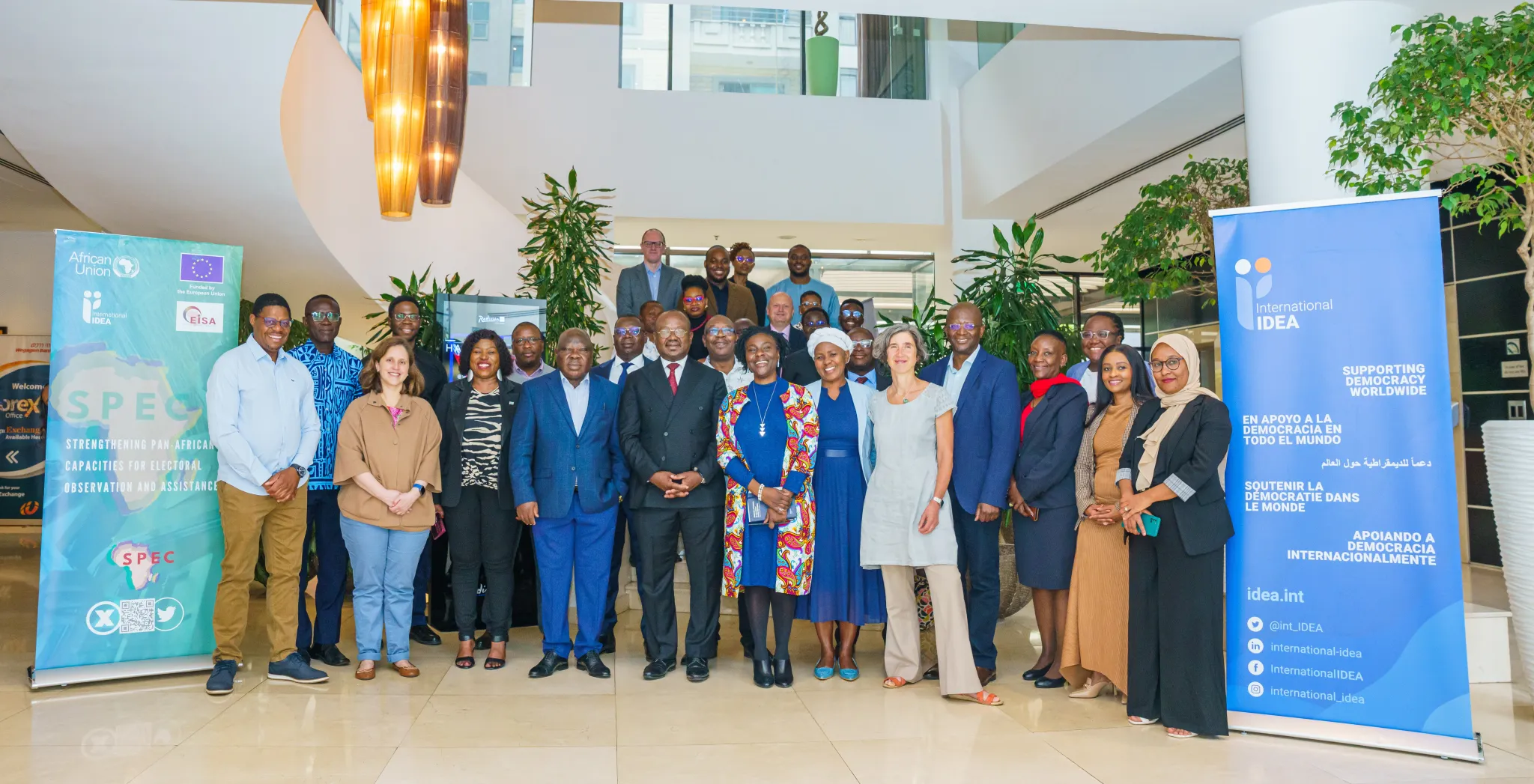Expert validation meeting on Electoral Integrity in Africa

The meeting gathered representatives from the African Union, Regional Economic Communities (RECs), Electoral Management Body (EMB) networks, civil society organizations, electoral experts, and international partners to validate two draft methodologies the Peer-to-Peer Learning and Accountability among EMBs in Africa, and the Data-Driven Strategies to Enhance Electoral Trust and Integrity.
Discussions also focused on the proposed AU-led Community of Practice (CoP) on Electoral Processes, envisioned as a platform for coordination, learning, and knowledge exchange among EMBs, CSOs, and stakeholders.
Meeting’s key insights and recommendations
- Peer Learning: The draft methodology, developed with input from twelve EMBs, outlines a structured approach to institutional learning. Challenges such as limited documentation and political sensitivities were noted. A Code of Ethics emphasizing confidentiality, early engagement, and evidence-based feedback was proposed. Regional EMB networks were identified as key implementation partners.
- Data Strategies: Experts highlighted gaps in data governance, technological capacity, and legal frameworks. Nigeria’s advancements in AI policy were acknowledged, with consensus on the need for broader capacity building and clearer mandates on data ownership.
- Community of Practice: Participants advocated for a flexible yet structured framework with inclusive governance. Alignment with the SPEC project’s timeline and resources was emphasized.
Some of the recommendations suggested during the meeting were as follows:
- Pilot the peer-learning methodology through regional EMB networks
- Integrate data strategies into legal frameworks
- Establish dedicated data units within EMBs
- Develop Terms of Reference for the CoP, defining roles and membership
Moving forward, the immediate next steps will focus on refining the project's core components based on the expert feedback. The peer-learning methodology will be finalized by incorporating additional case studies, with a particular focus on experiences from East African EMBs. Simultaneously, the proposed framework for the Community of Practice will be revised to detail a hybrid approach of virtual engagement and annual in-person reviews. All implementation activities will then be coordinated under the SPEC framework, with an initial progress review scheduled for December 2025 to ensure effectiveness.
Resource: For further information please read/download the Meeting report




